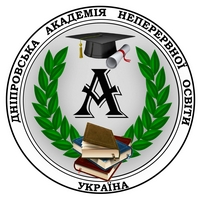DISCUSSION IN THE HISTORY OF PHILOSOPHICAL KNOWLEDGE
Abstract
The article is devoted to the study of the debate in the history of philosophical knowledge. The approaches to the problem of the discussion of the greatest philosophers: Socrates, Aristotle, Kant, Hegel, etc. are analyzed. The features of discourse in antiquity, the Middle Ages, and modern times have been determined. It is established that an important reason for the development of the discussion is the fact that ancient thinkers already began to realize the internal dialectical nature of material, natural, social processes and phenomena. Philosophy, more than any other field of knowledge, needs debate. Where there is no freedom of discussion, there is no true philosophy. Truth is born in controversy. There is probably no other axiom as universally known as this one. But there is no other human activity to which such diametrically opposite evaluations would be applied. Some called the dispute their fate, their element, others avoided it. Kant and Galileo felt pleasure in the struggle of ideas. Newton and Darwin shied away from disputes and polemics, believing that, apart from wasting time and bad mood, they lead to nothing. But both of them sought the truth. In order to find out the truth, it is necessary to study both positions, we need a discussion that communicates not opponents, but interlocutors, and everyone strives not to win, but to reach an agreement, to mutual understanding, through the analysis and synthesis of opinions, to the unity of views on the problem. Therefore, a discussion, a dialogue, a dialectical conversation will lead to the truth (or to a single goal) faster than a dispute saturated with emotional obstacles, temperamental outbursts, the desire to offend the opponent, to strike him more painfully and to defend his opinion by any means. And the fiercer the heat of passions, the more stubborn opponents who convince in their views, the further they depart from the truth. In the course of the discussion, non-traditional approaches to solving complex problems are developed, specific practical proposals and generalizations are made, and proposed initiatives are evaluated. Discussions awaken people's activity and interest, increase mutual demands, self-criticism, strengthen control over the implementation of specific decisions. The article examines some of the main philosophical discussions, conversations, debates during which different views and points of view collided.
References
2. Беспалов І. О. Сократ ‒ його філософія та діалогічний метод. Вісник Харківського національного університету імені В. Н. Каразіна. Серія: Теорія культури і філософія науки. 2019. Вип. 59. С. 34‒40.
3. Галілео Галілей. Діалог про дві найголовніші системи світу. Київ: Рипол Класик, 2018. 918 с.
4. Іммануїл Кант. Твори в 6 томах, вид. 1963–1966, в бібліотеці Теологіка. URL:https://theologica.pp.ua/subjects/author/%D0%9A%D0%B0%D0%BD%D1%82,%20%D0%98%D0%BC%D0%BC%D0%B0%D0%BD%D1%83%D0%B8%D0%BB (дата звернення: 14.11.2023).
5. Ігор Захара. Лекції з історії філософії. Львів: Видавництво ЛБА, 1997. 398 с.
6. Муравська С. М. Дискусія як один із інтерактивних методів навчання англійського мовлення майбутніх авіафахівців. Науковий вісник Криворізького державного педагогічного університету: зб. наук. праць. Вип. 16 / [редкол: Ж. В. Колоїз (відп. ред.), П. І. Білоусенко, А. З. Брацкі та ін.]. Кривий Ріг: ФОП Маринченко С. В., 2017. С. 473‒480.
7. Платон. Діалоги. Харків: Фоліо, 2022. 352 с.
8. Поварнін С. І. Спір. Про теорію і практику спору. Voprosy filosofii. 1990. № 3. С. 5–121.
9. Толстов В. М., Толстов І. В. Німецька класична філософія: Конспект лекцій. Харків: УкрДАЗТ, 2010. 41 с.
10. Філософія: навч. посібник / Ю. М. Вільчинський, Л. В. Северин-Мрачковська, О. Б. Гаєвська та ін. Київ: КНЕУ, 2019. 368 с.
11. Чорнобай О. Феномен Цицерона: теорія і практика риторичної аргументації. Вісник Національного університету «Львівська політехніка». Серія: Юридичні науки. 2017. № 865. С. 147–154.
12. Шопенгауер А. Еристична діалектика. Логіка і риторика. Мультимедійне видавництво Стрельбицького, 2015. С. 410–439.
13. Johann Gottlieb Fichte. Die Wissenschaftslehre. Zweiter Vortrag im Jahre 1804 vom 16. April bis 8. Juni. Herausgegeben von Reinhard Lauth und Peter K. Schneider und Joachim Widmann Philosophische Bibliothek 284. 1986. Gereinigte Fassung, XXX, 313 Seiten.

 ISSN
ISSN  ISSN
ISSN 

